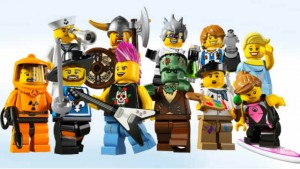Home » Commentary » Opinion » Did Senate voting reform fail?
· Ideas@TheCentre
 The Senate voting reform package earlier this year that abolished group voting tickets was designed to ensure that the election of senators more closely reflected what ‘each and every voter intends’ and was thought to make the election of minor party senators ‘near impossible’.
The Senate voting reform package earlier this year that abolished group voting tickets was designed to ensure that the election of senators more closely reflected what ‘each and every voter intends’ and was thought to make the election of minor party senators ‘near impossible’.
Of course we now know the Senate cross-bench, formerly consisting of eight Senators (1 NXT, 1 LDP, 1 FF, 1 DLP, 1 AMEP, and 3 former PUPs), has expanded to 11 (4 ON, 3 NXT, 1 LDP, 1 FF, Jacqui Lambie and Derryn Hinch).
While some have suggested this means the reforms have failed, there are two important provisos.
First, the results suggest the senate does better conforms to voting patterns. Only two senators (Day and Leyonhjelm) were elected with less than half a quota, compared to five in 2013 (though the Sports Party subsequently lost the seat in the WA Senate rerun), while no one with more than half a quota (including those multiple quotas plus a half) missed out, compared to six in 2013.
Largely this is due to preference flows being less structured. Votes no longer flow smoothly from one minor party to the next, some are siphoned off to the major parties at each step, while others exhaust (around 7.5% of votes exhausted nationally).
Second, the double dissolution halved the quota and massively reduced the barrier for minor parties. This is a once off occurrence: a crude model based on voting patterns at the last election suggests the cross-bench will shrink dramatically after two half senate elections.
Xenophon would get at least one Senator each time, probably ending up with 3 or 4 depending on whether his party could maintain their votes when he was not on the ticket. Leyonhjelm and Day wouldn’t survive, though Hinch remains a chance. Hanson and Lambie would be in a better position, though given their personal appeal its improbable their colleagues would be elected. There remains a slight potential for a popular minor party to pick up a seat with the donkey vote.
However the cross-bench would be expected to be between 2 and 7, most likely 4 or 5. The Greens, currently with 9 Senators, would have between 8 and 10 (they would need substantial help from preferences in NSW and QLD). The remaining seats would most likely go to the major parties.
While the merit of getting rid of the cross-bench remains in question, it would be wrong to assume the attempt has failed.
Did Senate voting reform fail?